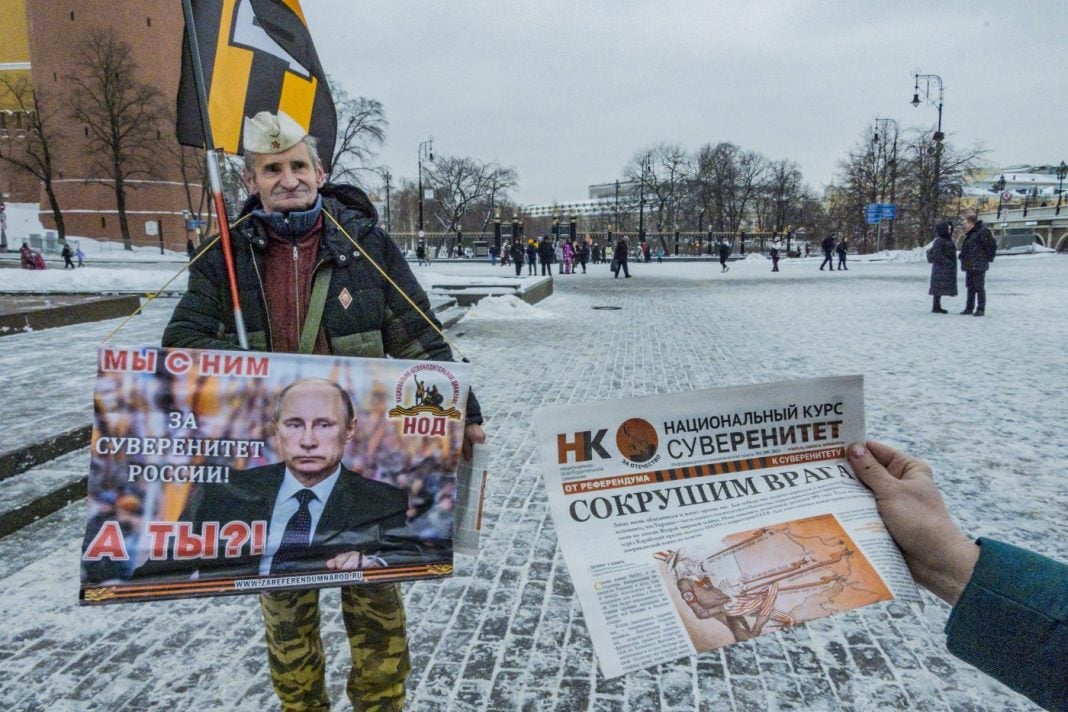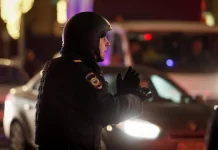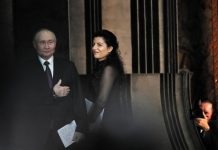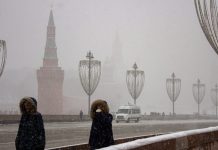By Walter Clemens, for CEPA
Russian public opinion is not very different from the 19th century. The tsar can do no wrong. Problems are blamed on administrators, or things that can’t be changed.
Unlike the serfs, freed in 1861, today’s Russian population is literate and has access to books, periodicals, and computers to find the facts of life at home and abroad. And while the state controls much of what is said or published, curious minds can easily find alternative sources.
Yet the big picture remains the same. The tsar is always right and can do no harm. The criticisms of his regime by Russian dissidents and foreign critics can and should be ignored.
These judgments arise from surveys taken by the Levada Center for Public Opinion, founded in the Gorbachev era of glasnost. Since last year, the Center has operated independently of government support and is included in the register of non-commercial organizations acting as “foreign agents.”
Its June survey reported that 54% of respondents pay attention to events in Ukraine, but 46% do not. The group most likely to be conscripted — males aged 18 to 30 — showed the least interest in the war. By contrast, some 68% of Russians aged 55 and older said they follow events in Ukraine closely.
The 60% of Russians who get the news from television had the most interest in Ukraine, while more than half of those who depend on other sources — social media, Telegram, or YouTube —pay little attention to events there.
When asked if they personally support Russia’s war, more than three-quarters of respondents — 77% in June 2024 — said they did. Only 7% were definitely opposed (down from 11% in December 2022.)
The high rate of positives persists even among those who say they face economic difficulties, such as obtaining sufficient food or clothes. Positives are highest among those who think the government is moving in the right direction.
Get the Latest
Sign up to receive regular emails and stay informed about CEPA’s work.Email
The more that people rely on television, the higher they rate Putin and his war in Ukraine. The findings suggest they are buying into his narrative of an existential fight for Russia’s culture and values against a malign Western world.
The researchers asked people what feelings were aroused by the military actions in Ukraine. For 48% it was pride in Russia — a 10-point rise from September. At the same time, 33% said they felt anxiety and fear, a proportion that has remained level throughout the conflict. And while 14% said the war causes anger or shame, that figure was down from 20% in September.
On the question of whether Russia should continue to fight or negotiate, 37% wanted to fight on while 58% wanted negotiations — up from a low of 45% in May 2023. Women and younger respondents leaned towards negotiations.
But 41% say Russia is more interested in negotiating, and twice as many believe Ukraine wants talks. The survey did not specify the terms of negotiations, or that Kyiv’s terms are very different from anything Putin has suggested. For example, respondents were not asked if they would insist on keeping Crimea and Donetsk.
More than half of respondents think events in Ukraine could lead to war with NATO and three-quarters anticipate such a war would involve nuclear weapons. One-third think Russia would be justified to use its warheads while half of respondents say it would not.
It is clear that the Kremlin’s disinformation and the bias of the Russian media are cutting through. Asked who is most responsible for death and destruction in Ukraine, 65% blamed the US and NATO — up from 57% in 2022-2023. Just 6% put the main responsibility on Russia.
There is, however, an age split. Only 41% of younger Russians blame the West, compared to three-quarters of those aged 55 and older.
The Levada methodology resembles that developed by Gallup and other US pollsters, but cannot avoid the inhibitions of the autocratic society it operates in and the effects that can have on responses. Survey interviews took place in 1,627 homes across the Russian Federation.
By Walter Clemens, for CEPA
Walter Clemens is an Associate at Harvard University Davis Center for Russian and Eurasian Studies and Professor Emeritus of Political Science at Boston University. His latest book is ‘Blood Debts: What Putin and Xi Owe Their Victims’ (Westphalia, July 2023).
Europe’s Edge is CEPA’s online journal covering critical topics on the foreign policy docket across Europe and North America. All opinions are those of the author and do not necessarily represent the position or views of the institutions they represent or the Center for European Policy Analysis.





